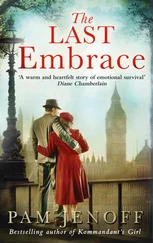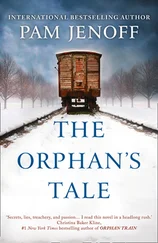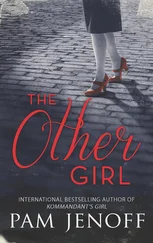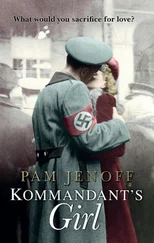One drop, then another, comes from the kitchen faucet that Cookie did not manage to shut. I stand with effort, grimacing at the dull pain that shoots through my thigh, the wound that has never quite healed properly over more than a half century. It hurts more intensely now that the days have grown shorter and chilled.
Outside a siren wails and grows closer, coming for someone here. I cringe. Now, it is not death I fear; each of us will get there soon enough. But the sound takes me back to earlier times, when sirens meant only danger and saving ourselves mattered.
As I start across the room, I catch a glimpse of my reflection in the mirror. My hair has migrated to that short curly style all women my age seem to wear, a fuzzy white football helmet. Ruth would have resisted, I’m sure, keeping hers long and flowing. I smile at the thought. Beauty was always her thing. It was never mine, and certainly not now, though I’m comfortable in my skin in a way that I lacked in my younger years, as if released from an expectation I could never meet. I did feel beautiful once. My eyes travel to the lone photograph on the windowsill of a young man in a crisp army uniform, his dark hair short and expression earnest. It is the only picture I have from that time. But the faces of the others are as fresh in my mind, as though I had seen them yesterday.
A knock at the door jars me from my thoughts. The staff has keys but they do not just walk in, an attempt to maintain the deteriorating charade of autonomy. I’m not expecting anyone, though, and it is too early for lunch. Perhaps Cookie forgot something.
I make my way to the door and look through the peephole, another habit that has never left me. Outside stand a young woman and a uniformed policeman. My stomach tightens. Once the police only meant trouble. But they cannot hurt me here. Do they mean to bring me bad news?
I open the door a few inches. “Yes?”
“Mrs. Nowak?” the policeman asks.
The name slaps me across the cheek like a cold cloth. “No,” I blurt.
“Your maiden name was Nowak, wasn’t it?” the woman presses gently. I try to place how old she might be. Her low, dishwater ponytail is girlish, but there are faint lines at the corners of her eyes, suggesting years behind her. There is a kind of guardedness that I recognize from myself, a haunted look that says she has known grief.
“Yes,” I say finally. There is no reason to hide who I am anymore, nothing that anyone can take from me.
“And you’re from a village in southern Poland called...Biekowice?”
“Biekowice,” I repeat, reflexively correcting her pronunciation so one can hear the short e at the end. The word is as familiar as my own name, though I have not uttered it in decades.
I study the woman’s nondescript navy pantsuit, trying to discern what she might do for a living, why she is asking me about a village half a world away that few people ever heard of in the first place. But no one dresses like what they are anymore, the doctors eschewing white coats, other professionals shedding their suits for something called “business casual.” Is she a writer perhaps, or one of the filmmakers Cookie referenced? Documentary crews and journalists are not an uncommon site in the lobby and hallways. They come for the stories, picking through our memories like rats through the rubble, trying to find a few morsels in the refuse before the rain washes it all away.
No one has ever come to see me, though, and I have never minded or volunteered. They simply do not know who I am. Mine is not the story of the ghettos and the camps, but of a small village in the hills, a chapel in the darkness of the night. I should write it down, I suppose. The younger ones do not remember, and when I am gone there will be no one else. The history and those who lived it will disappear with the wind. But I cannot. It is not that the memories are too painful—I live them over and over each night, a perennial film in my mind. But I cannot find the words to do justice to the people that lived, and the things that had transpired among us.
No, the filmmakers do not come for me—and they do not bring police escorts.
The woman clears her throat. “So Biekowice—you know of it?”
Every step and path, I want to say. “Yes. Why?” I summon up the courage to ask, half suspecting as I do so that I might not want to know the answer. My accent, buried years ago, seems to have suddenly returned.
“Bones,” the policeman interjects.
“I’m sorry...” Though I am uncertain what he means, I grasp the door frame, suddenly light-headed.
The woman shoots the policeman a look, as though she wishes he had not spoken. Then, acknowledging it is too late to turn back, she nods. “Some human bones have been found at a development site near Biekowice,” she says. “And we think you might know something about them.”
1
Poland, 1940
The low rumbling did not rouse Helena from her sleep. She had been dreaming of makowiec, the poppy seed rolls Mama used to make, thick and warm with a dusting of sugar. So when the noise grew louder, intruding on her dream and causing her hands to tremble, she clung tighter to the bread, drawing it hurriedly to her mouth. But before she could take a bite, a crash rattled the house and a dish in the kitchen fell and shattered.
She sat bolt upright, trying to see through the darkness. “Ruth!” Helena shook her sister. Ruth, who was curled up in a warm ball with her arms wrapped around the three slumbering children between them, had always slept more soundly. “Bombs!” Immediately awake, Ruth leaped up and grabbed one of their younger sisters under each arm. Helena followed, tugging a groggy Michal by the hand, and they raced toward the cellar as they had rehearsed dozens of times, not bothering to stop for the shoes lined up at the foot of the bed.
Helena scrambled down the ladder first, followed by Michal. Then Ruth passed five-year-old Dorie below before climbing down herself, the baby wrapped around her neck. Helena dropped to the ground and pulled Dorie onto her lap, smelling the sour milk on the child’s breath. She cringed as the inevitable wetness of the muddy earth seeped through her nightclothes, then braced herself for the next explosion. She recalled the horrors she’d heard of the Warsaw bombings and hoped that the cottage could withstand it.
“Is it a storm?” Dorie asked, her voice hushed with apprehension.
“Nie, kochana.” The child’s body relaxed palpably in Helena’s arms. Dorie could not imagine something worse than a storm. If only it were that simple.
Beside her, Ruth trembled. “Jeste´s pewna?” Are you certain there were bombs?
Helena nodded, then realized Ruth could not see her. “Tak.” Ruth would not second-guess her. The sisters trusted each other implicitly and Ruth deferred to her where their safety was concerned. Michal leaned his tangle of curls against her shoulder and she hugged him tightly, feeling his ribs protrude beneath his skin. Twelve years old, he seemed to grow taller every day and their meager rations simply couldn’t keep up.
Ten minutes passed, then twenty, without further noise. “I guess it’s over,” Helena said, feeling foolish.
“Not bombs, then.”
Helena could sense her sister’s lips curling in the darkness. “No.” She waited for Ruth’s rebuke for having dragged them needlessly from bed. When it did not come, Helena stood and helped Dorie up the ladder. Together they all climbed back into the bed that had once belonged to their parents.
Helena thought of the noises early the next morning as she made her way up the tree-covered hill that rose before their house. The early-December air was crisp, the sky heavy with foreboding of the harsher weather that would soon come. It had not been her imagination—she was sure of that. She had heard the drone of the airplane flying too low and the sound that followed had been an explosion. But she could see for miles from this vantage point, and when she peered back over her shoulder, the tiny town and rolling countryside were untouched, the faded rooftops and brown late-autumn brush she had known all her life showing no signs of damage.
Читать дальше
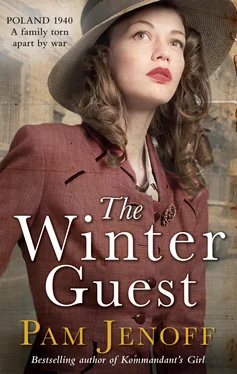
![О Генри - Граф и свадебный гость [Черное платье] [The Count and the Wedding Guest]](/books/405331/o-genri-graf-i-svadebnyj-gost-chernoe-plate-th-thumb.webp)
